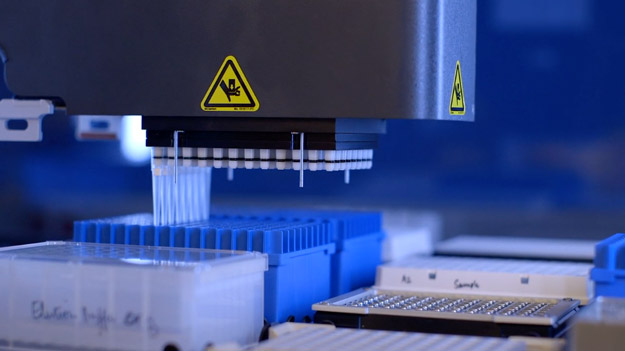Researchers Develop Storage Tech Capable Of Holding 215 Petabytes Of Data On A Single Gram Of DNA
If you think that 60TB SSDs are impressive, you might want to sit down for what researchers at Columbia University and the New York Genome Centre have managed to pull off using DNA storage. Using new encoding technology, the researchers have the ability to store an amazing 215 petabytes (215 million gigabytes) of data onto a single gram of DNA.
If you recall, we brought you news last July that Microsoft had managed to store 200MB on a single strand of DNA. This latest advance, however, takes those efforts to the extreme. According to Columbia University computer scientist Yaniv Erlich, they were able to encode at 1.6 bits per nucleotide, which works out to 85 percent of the theoretical maximum limit for DNA storage.

Humans are producing new data at an enormous rate, with Science Magazine reporting that we have created more data in the past two years than in all the preceding years of human existence. At some point, not even the most capacious hard drives will be able to store all of our information, which explains why researchers have turned their attention to DNA storage.
However, there are of course downsides to this (or any) emerging storage medium; namely cost and speed. According to Erlich and Sri Kosuri, a biochemist at the University of California, Los Angeles, it costs $7,000 to synthesize just 2MB of data. Then you have to be able to read the data, which adds $2,000 to the total. Imagine writing and read 215 petabytes of data and you can see why DNA storage still has years, if not decades before it becomes commercially viable.
There is also the issue of data speeds, which are right now painfully slow compared to your garden variety NVMe PCIe SSDs. So, DNA storage might instead be used for archival purposes until the performance bottleneck can be broken. However, the promise of millions of gigabytes of data storage, extremely high reliability, and the fact that DNA isn’t exactly going to become obsolete are definite pluses. In addition, DNA can survive for thousands of years as long as it is kept in a cool and dry environment.
This latest development must be music to the ears of Tesla and SpaceX CEO Elon Musk. Musk has recently championed the rise of biotechnology and the interfacing of humans with machine to combat the rise of artificial intelligence in the world.

